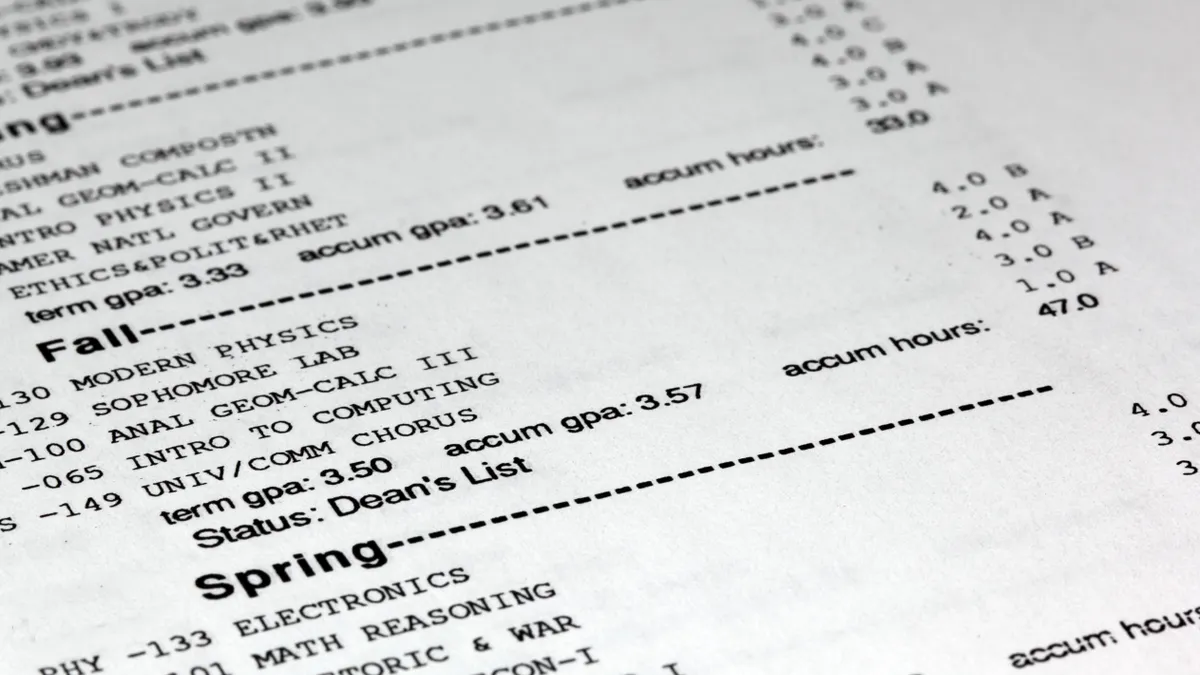Dive Brief:
- The Consumer Financial Protection Bureau recently said it will examine the practice of colleges withholding students' academic transcripts as a method to collect their outstanding debt.
- The agency said that use of such debt collection tactics "is particularly perplexing," as they undermine students' ability to obtain jobs or finish their degrees and thus hinder paying back what they owe.
- Institutions have come under fire for not releasing transcripts for students who owe nominal amounts of debt. U.S. Secretary of Education Miguel Cardona has called for colleges to abandon transcript holds, saying they disadvantage vulnerable students.
Dive Insight:
The coronavirus pandemic threw into focus financial barriers for low-income and vulnerable students — one of which is transcript holds.
Students generally need their academic records to transfer to other colleges or find higher-level academic programs or employment. However, many colleges have taken to withholding their transcripts if they have unpaid debts, even in small amounts.
The consequences are visible. Adult and low-income students, and those who are members of racial and ethnic minority groups, are more likely than other students to have earned college credit but not a credential due to institutions withholding their paperwork, according to a 2020 report by research nonprofit Ithaka S+R.
Although transcript holds can be used as a way to force students to pay debts that they owe to institutions, they're often not successful. Colleges often collect a very small percentage of such debts owed to them. For example, the Connecticut State Colleges and Universities system essentially writes down unpaid student debt that's more than a year old at the end of each fiscal year, its chief financial officer has said.
The CFPB noted in a statement April 18 that transcript holds have been used to try to recover a range of debts, from library fees to student loans. It said that by declining to issue these transcripts, institutions "are keeping their students from the very academic and labor market opportunities promised by higher education."
The agency said transcript holds risk students losing the opportunity to land jobs, transfer to other colleges or obtain required occupational licenses.
"Some students suffering these repercussions might find themselves financially worse-off than if they had never attended the school in the first place," the CFPB said.
Amid pushback to end transcript withholding, New York's two public higher education systems abandoned the practice. The State University of New York, the country's largest public comprehensive higher education system, and the City University of New York, both announced in January they were ending use of transcript holds.
More recently, in Colorado, the Democratic governor this month signed a new law that largely prevents colleges from withholding student transcripts. Colleges cannot withhold these records over fees or other amounts of debt. And even if students owe money on tuition, room and board, or financial aid funds, if they prove they're trying to transfer to a new college, apply for a job or seek more aid, then colleges must release their transcripts.
The CFPB statement comes as the agency has taken a more active role policing higher education under the Biden administration. Republicans have taken notice.
Two high-ranking House Republicans this month wrote to the U.S. Department of Education's Office of Federal Student Aid, accusing the agencies of colluding on federal student loan policies.
They requested communications between FSA and the CFPB since Jan. 1, 2021, as well as information on loan servicers the agencies issued since Aug. 31, 2017.















